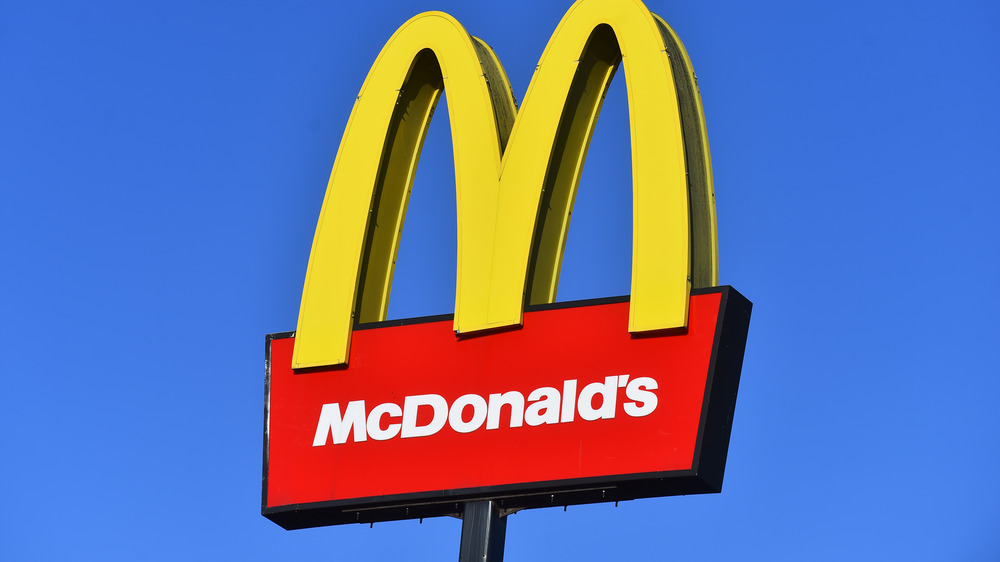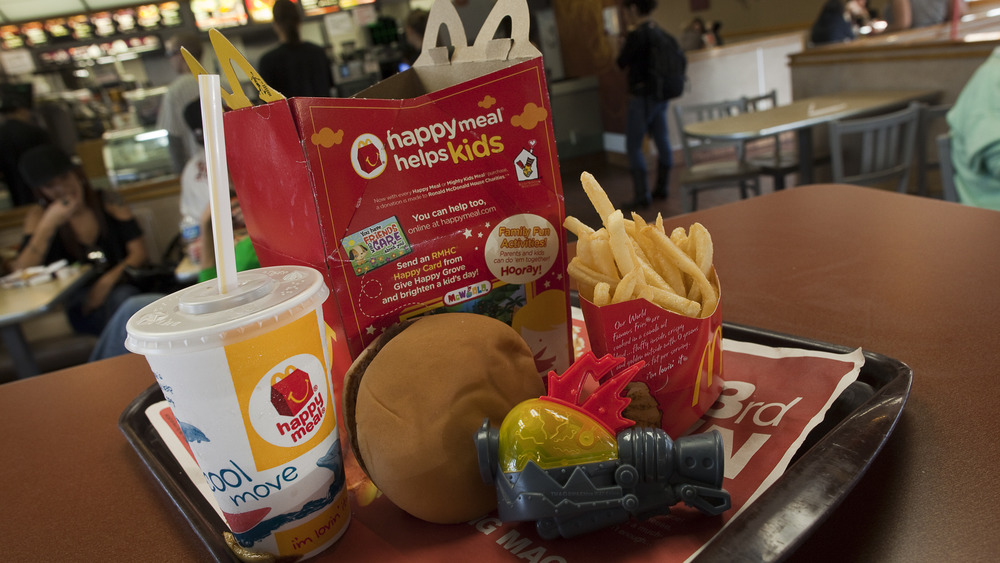Why McDonald's Happy Meals Might Be Getting More Expensive
One of the happiest things about McDonald's Happy Meals is the fact that they're actually a pretty affordable way to get something that more or less resembles a full meal (main dish, side, drink). Okay, so it's not the healthiest thing out there, but for kids and adults alike, sometimes we just need something quick that actually tastes halfway decent instead of being told we should stay home and make our own tofu/quinoa stir-fries. Plus, from a nutritional standpoint, the Happy Meal's kid-size portions work in its favor, since dining on one of these (even if you feel obligated to pretend you're buying it for a child you don't actually have) is the opposite of saying "Supersize me" with all of the attendant effects. Plus, if you're fortunate, you might even luck into getting one of the cooler toys in your box.
Well, Happy Meals are still staying small and getting healthier, and they haven't ditched the toys to date (although the Disney ones are on pause at present). However, there is some bad news on the horizon: Business Insider reports that it's very likely that Happy Meal prices are set to increase in 2021. In fact, they may go up as soon as New Year's Day.
McDonald's will stop subsidizing the low price of Happy Meals
That's no way to start off a new year! What's with the price increase? Turns out, McDonald's franchisees actually set the prices on most menu items, but McDonald's has been subsidizing each franchise to the tune of about $3,600 per year to keep Happy Meal costs down. Without this subsidy, many franchisees say they'll have to raise the price of this item. One franchisee told BI: "Families in America ... want a value-priced Happy Meal," but a Mickey D's memo says the Happy Meal subsidy "is no longer fueling growth in the way it once was." The bottom line is that it's history as of Jan. 1, 2021.
This isn't the only change that will affect franchisees. McDonald's as a chain is nearly entirely franchisee-operated — only 5 percent of their restaurants are corporate-run. While franchise owners can make a decent income — on average, about $150k per year, per Fox Business — it costs a pretty sizeable amount to buy into a franchise in the first place. Startup costs may run from $1.26 million to $2.23 million, and the first half-mil has to be in the form of "unborrowed capital." At any rate, no matter how well-off franchisees are doing, and most seem to have profited out of the pandemic, Mickey D's is going to start asking them for more money. EconoTimes reports that additional fees and lost subsidies may cost each location about $12,000 per year, and don't expect they won't pass that along to us, as well.

